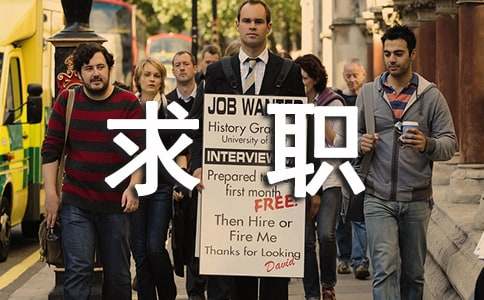如何写求职信有回音
Before You Hit Send

Seven key questions to ask yourself before applying for a job.
1. Can I learn more about the job requirements and the needs of the organisation1?
2. Do I meet at least 70% of the selection criteria2?
3. What key words and phrases are used in the position description?
4. Can I enhance my resume to make it through the applicant3 tracking system?
5. Have I made it clear how I differentiate4 myself from other similar candidates?
6. Does my CV clearly show how I can solve the problem and add value to the organisation?
7. Have I folllowed the application instructions specified5 in the ad?
Quality over quantity
For starters -- and this might seem counterintuitive when you're feeling desperate to land a job -- be selective.
"No one should be applying for 'thousands' of jobs. Or even hundreds," said Mary Ellen Slayter, a career expert at online job-search website Monster.com, in an email. "It's simply unlikely that someone would be qualified6 for that many positions to begin with. You're setting yourself up for disappointment."
Instead, focus on whether you have the right skills and training for the jobs you actually want.
"If not, it's time to find ways to develop them, even if it's through more education or volunteer activities," said Slayter. "No (resume) formatting7 tricks can overcome a lack of provable skill."
Peppering doesn't work
Many people make the mistake of simply peppering their CV or resume with keywords, thinking that will be enough to get them through the applicant tracking system (ATS) software that 75% of large companies use to screen applicants8.
But keywords alone won't work, according to Matt Sigelman, CEO of Burning Glass, a Boston-based job market and career analytics company. ATS software has become much more sophisticated over the past few years – and applicants need to adapt their applications to that. Newer search technology offers a more "holistic9 evaluation10" of your resume or CV than in the past, according to Sigelman. Therefore, your resume should not be a list of facts but rather anarrative11 that tells a story.
"A narrative resume is essentially12 what every resume should aspire13 to be, that is, something that tells the story of your professional life in such a way that it's clear that this new job -- the job to which you are applying -- is the next chapter in that story," Sigelman said.
Instead of writing a generic14 job description for each of your work experiences and leaving it unchanged no matter what job you are applying for, a well-written narrative would adapt each job description (and other sections too) so as to emphasize the specific experiences, skills, and vocabulary that the employer is looking for, Sigelman said.
"Really your resume is an elevator pitch: why you are a great for this [particular] job," he said. If you have been working as the director of sales and marketing15, for instance, and you want to apply for a position as vice16 president of sales, describe the work you have been doing in a way that emphasizes the sales experience that the vice president job demands instead of the experience you have accrued17. "Similarly, you may want to reshuffle what you include in any skill lists on your resume based on what you think would be of value to this employer," Sigelman added.
Do your homework
Mary Goldsmith's biggest pet peeve18 when she was an executive recruitment consultant19was applicants "who didn't bother to edit their resume to reflect the needs of the organisation, or role requirements, even when a comprehensive position description was available."
Not taking the time to customize your resume gives a really bad first impression.
"It looked like sheer laziness, which can appear disrespectful to the person screening your application at the other end," said Goldsmith, now a Melbourne, Australia-based executive career coach.
Research the company before you complete your application. Check to see if the organization has a company page on business networking site LinkedIn. If it does, look for clues about how to develop your application, suggested Goldsmith. See if you know anyone working there. If you do, ask them about the company and what they look for in people. Check employee profiles to get an understanding of the type of people they recruit and what they value. "Use this information to modify your application and decide if you're a likely fit and if the application is worth pursuing," said Goldsmith.
Name dropping
If you have experience at a well-known company (in the case of Zaveri: Cisco), take advantage of it, suggested Steven Yeong, a recruiter coach at Hof Consulting in Singapore. "Continue to highlight your experience [there] in your CV," he said in an email. And send your CV to all of the direct competitors of the company where you worked.
"Most companies have a tendency to want to hire people who have worked for competitors," he said.
Always a better way
No matter how well you craft your resume or CV, it still can't beat a personal contact who can recommend you to a hiring manager or recruiter. "As everything changes in job search, some things remain the same," said Wendy Enelow, founder20 and director of Virginia-based Resume Writing Academy, in an email. "Networking is still the number one way to find a new position."
【如何写求职信有回音】相关文章:
如何写求职信07-22
英文求职信如何写11-14
如何写英文求职信11-06
如何写好求职信「必知」08-28
教你如何写好英文求职信08-28
如何写出完美的求职信12-02
网投求职简历为何没有回音?11-08
为什么简历投递后无回音08-05
如何写好个人英文求职信11-30